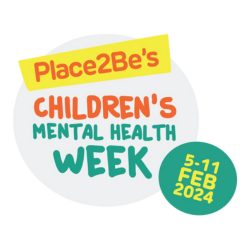- UNIFORM BY SCHOOL
- Girls School Uniform
- Boys School Uniform
- Skirts
- Boys Trousers
- Girls Trousers
- Polo Shirts
- Blouses
- Shirts
- Blazers
- PE Kit
- Clearance


Girls School Uniform


Boys School Uniform


FREE delivery - Ends Monday at Midnight
(X)







Children's Mental Health Week is taking place on 5-11 February 2024 and this year's theme is about empowering young people with the tools needed to express themselves. Why not take part and hold an “Express Yourself” fundraiser. They have a super easy step by step guide in their resource pack. You can request one here.
Schools and groups can also check out their online resources here.
Children go through an enormous amount of change in just a few short years – it’s when we grow fastest, both physically and mentally. Therefore, it’s really important to help equip them with tools they need to have a healthy future. We've devised a few tips below with how you can help children really express themselves from this week and beyond:
Talk about when they were younger
Most children like to hear stories about when they were younger, whether it’s their first word or when they started to walk. Chat to your kids about things you enjoyed seeing them learn to do, like riding a bike or learning to swim.
If you’re an adoptive parent, foster or kinship carer, you’ll still have lots of memories to share from when you first came together as a family – it could be how happy you felt when they came to join you.
Notice when your children have developed and grown
You might’ve made marks on the walls to see how tall your child has grown over the years, or how they’ve grown out of their school uniform from the beginning of the year to the end. It’s also important to recognise and praise emotional growth. Tell them how proud you were a when they were nervous to do something but overcame it and enjoyed it, or when they’ve stood up for someone who was being picked on.
Encourage them to try new things
This could be new foods, a new activity or a new experience. Focus on their willingness to ‘give things a go’ rather than whether they were ‘good’ at it. This will give them confidence to continue to develop and grow.
Listen to your children’s hopes and dreams for the future
Encourage your children to see that everything they’re doing right now will help them become the person they want to be in the future. For example, some kids will find staying over at a friend’s house overnight for the first time quite difficult, but by doing so it’s a step towards independence when they’re older, like going away to study or work. Try to explain that most people feel nervous the first time they’re doing something or going somewhere, but the more we practise, the easier it gets.
Support your child to learn from tough situations
It can be really hard to see your kids upset. It might be that they’re not getting on with friends or struggling with a subject at school. Smaller children might not be able to express how they’re feeling in words, so look out for changes in their behaviour, like being quieter than normal, or complaining of tummy or headaches – these could be signs that they’re struggling with something emotionally.
Teenagers don’t always want to open up to parents but they might prefer to talk to peers. Charities like Young Minds have lots of resources including blogs to help young people and parents with mental health support.
Throughout all of this it’s important to reinforce that when we might face difficult situations, they don’t last forever. By listening to and guiding your children, it’ll help them to cope with and overcome difficult situations in the future.
